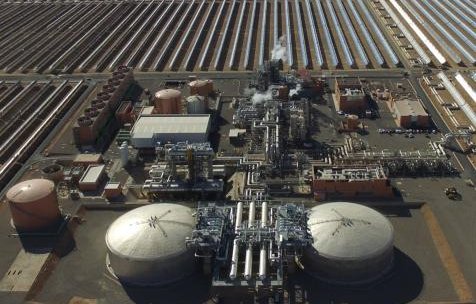Mohammedia – Since launching its National Energy Strategy in 2009, Morocco has been working toward increasing the share of renewable energy to 52% of its installed electricity capacity and reducing energy demand by 20% by 2030.
The 2026 Finance Bill continues this energy transition by advancing renewable energy projects, enhancing energy efficiency, investing in infrastructure, and fostering the development of new technologies.
As of May 2025, renewable energy accounted for over 45% of Morocco’s total installed power capacity, up from 37% in 2021. The energy mix consists of 44% wind power, 24% hydropower, 17% solar energy, and 15% pumped storage plants. Key projects like Noor Atlas and Noor Midelt have helped reduce production costs to between 34 and 42 centimes per kilowatt-hour, increasing the sector's competitiveness.
In 2026, the government plans to boost solar and wind power generation and develop large-scale battery storage facilities to ensure a reliable energy supply.
Morocco is also advancing its peaceful use of nuclear energy in collaboration with the International Atomic Energy Agency (IAEA). Several projects are being implemented in 2024 and 2025 to improve agricultural productivity and enhance radiation safety. Three new initiatives will be launched in 2026 and 2027 under the National Framework Programme 2024–2029, including updates to nuclear legislation, strengthening food security through livestock disease control, and optimizing water resource management.
The government is also progressing with its natural gas master plan. Following an agreement in 2024 to build gas import, storage, and transport infrastructure, the plan is now entering its operational phase. The first LNG terminal will be constructed at Nador West Med port, with investor searches and tendering scheduled for late 2025 through 2026. A new regulatory framework will also be introduced to oversee the importation, distribution, and supply of natural gas across Morocco.
Green hydrogen, energy efficiency, and mining reforms are central to the next phase of Morocco’s energy strategy. In 2025, Morocco signed its first land reservation deal under the "Morocco Offer," launching six large-scale green hydrogen projects in the southern regions, including Laayoune-Sakia El Hamra, Guelmim-Oued Noun, and Dakhla-Oued Eddahab. Supported by five local and international investors, these projects represent a total investment of MAD 370 billion and aim to position Morocco as a global leader in green hydrogen production and export.
Energy efficiency remains a key focus of Morocco’s sustainability strategy. After significant progress in 2025, which included twelve regional decarbonization plans and a national energy savings monitoring system, several new initiatives are planned for 2026. These include the introduction of minimum performance standards for household appliances, updates to the Binayate software used for calculating buildings' thermal compliance, and public awareness campaigns aimed at promoting sustainable energy use in sectors such as transportation, manufacturing, construction, and agriculture.
The mining and geological sectors are also seeing notable growth. As part of the National Geological Mapping Plan, mapping projects launched in 2024 and 2025 in regions like the High Atlas and Rabat-Salé-Kénitra will expand in 2026 to include new areas like Boutonnière du Bas Drâa and the Oulad Dlim massif. By the end of 2024, geological coverage reached 45%, with plans for further expansion.
To support these efforts, a draft law to amend Law No. 33-13 on mining is under development. The proposed reform aims to align the sector with the objectives of Morocco’s New Development Model, regulate new activities such as natural hydrogen exploration, geothermal energy production, and underground storage, and improve environmental protection, governance, and transparency while fostering local value creation from extracted minerals.
Through the 2026 Finance Bill, Morocco reaffirms its commitment to an energy-driven growth model focused on sustainable development and resource conservation.
